-
Why typhoid fever pathogen targets only humans
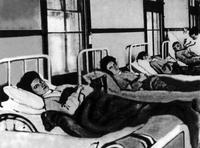
Salmonella typhiis a particularly nasty bacterium that targets only humans and causes typhoid fever, which kills hundreds of thousands of people annually; scientists explain how evolution shaped the pathogen to be so selective
-
-
Scanning social media as a tool for biosurveillance
DHS is considering observing and scanning social media Web sites to collect and analyze health-related data which could help identify outbreaks of infectious diseases and other public health and national security risks
-
-
“Black swans” and “perfect storms” are often lame excuses for bad risk management
The terms “black swan” and “perfect storm” have become part of public vocabulary for describing disasters ranging from the 2008 meltdown in the financial sector to the terrorist attacks of 9/11, but some argue that people in government and industry are using these terms too liberally in the aftermath of a disaster as an excuse for poor planning
-
-
Improving the sensitivity of airport security screening
Scientists are reporting a simple way to improve the sensitivity of the test often used to detect traces of explosives on the hands, carry-ons, and other possessions of passengers at airport security screening stations; scientists concluded that swab fabrics could be improved to collect smaller amounts of explosives by peppering them with hydroxyl, phenyl and amine functional groups
-
-
New fluorescence technology pinpoints oil leaks at sea
Cambridge Consultants uses fertility monitor technology in oil leak early warning system; the company has built an oil spill detection technology platform which is capable of detecting the natural fluorescence of even tiny amounts of oil in or on water
-
-
Plants, soils could exacerbate climate change as global climate warms
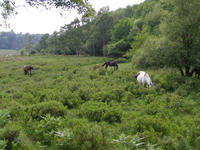
Scientists have demonstrated that plants and soils could release large amounts of carbon dioxide as global climate warms; this finding contrasts with the expectation that plants and soils will absorb carbon dioxide and is important because that additional carbon release from land surface could be a potent positive feedback that exacerbates climate warming
-
-
Sea-level records reveal tight correlation between ice volume and polar temperature
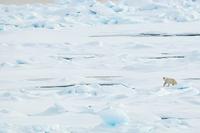
During the last few million years, global ice-volume variability has been one of the main feedback mechanisms in climate change, because of the strong reflective properties of large ice sheets. Ice volume changes in ancient times can be reconstructed from sea-level records; a new study has revealed a rapid response between global temperature and ice volume/sea-level, which could lead to sea-levels rising by over one meter
-
-
In Pennsylvania, the U.S. mecca of fracking, more scientific research is urged
Hydraulic fracturing or fracking is a controversial method to extract natural gas or petroleum from subterranean shale by using pressurized water to blast it open; proponents of fracking have noted its potential for helping the United States achieve energy independence while also stimulating the economy and creating jobs; these proponents have met stiff resistance from environmental groups that claim fracking can result in air and water pollution and have adverse human health effects
-
-
“Groundwater inundation” doubles previous predictions of flooding with future sea level rise

Scientists published a study today showing that besides marine inundation (flooding), low-lying coastal areas may also be vulnerable to “groundwater inundation,” a factor largely unrecognized in earlier predictions on the effects of sea level rise (SLR)
-
-
Stunt kites raise wind power to another level
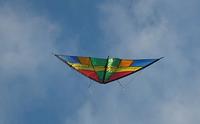
Researchers are sending stunt kites into the skies to harness the wind and convert the kinetic energy generated into electricity; the kites fly at a height of 300 to 500 meters, positioned to be caught by strong winds; cables, about 700 meters in length, tether the kites to vehicles and pull them around a circuit on rails; a generator then converts the kinetic energy of the vehicles into electricity
-
-
New tool for incorporating water impacts into policy decisions
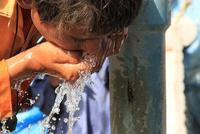
Just-released paper offers policy makers innovative framework for linking human well-being and water quality; a new tool helps in assessing and valuing the many services clean water provides — from recreation and beauty to navigation and hydropower — and incorporating them into policy decisions
-
-
The world’s first circuit breaker for high voltage direct current (HVDC) will enable future DC grid

A Swiss company solves a 100-year-old electrical engineering puzzle by developing the world’s first circuit breaker for high voltage direct current (HVDC); it combines very fast mechanics with power electronics, and will be capable of “interrupting” power flows equivalent to the output of a large power station within 5 milliseconds – this is thirty times faster than the blink of a human eye; the solution will help shape the grid of the future
-
-
Cleanup of most contaminated U.S. groundwater sites unlikely for many decades
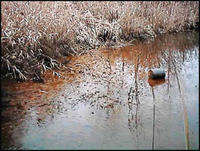
At least 126,000 sites across the United States have contaminated groundwater that requires remediation, and about 10 percent of these sites are considered “complex,” meaning restoration is unlikely to be achieved in the next 50 to 100 years due to technological limitations; the estimated cost of complete cleanup at these sites ranges from $110 billion to $127 billion, but the figures for both the number of sites and costs are likely underestimates
-
-
Scholarship program invites students to share their enthusiasm for math
Raytheon Company is calling for submissions to its 2012-13 MathMovesU Middle School Grant and Scholarship Program. To participate, sixth-, seventh-, and eighth-grade students nationwide are invited to illustrate the importance of math in the mission to Mars and in space exploration
-
-
Sandy’s damage in New York State could reach $33 billion
Governor Andrew Cuomo said yesterday that the damage in New York state from Superstorm Sandy could reach $33 billion; a firm specializing in damage estimate had earlier estimated that Sandy might have caused between $30 billion and $50 billion in economic losses from the Carolinas to Maine; these estimates include property damage, lost business, and extra living expenses; Cuomo’s estimate, which are based on studies by experts in his administration, are likely push these figures higher
-
More headlines
The long view
A Shining Star in a Contentious Legacy: Could Marty Makary Be the Saving Grace of a Divisive Presidency?
While much of the Trump administration has sparked controversy, the FDA’s consumer-first reforms may be remembered as its brightest legacy. From AI-driven drug reviews to bans on artificial dyes, the FDA’s agenda resonates with the public in ways few Trump-era policies have.
Risk Assessment with Machine Learning
Researchers utilize geological survey data and machine learning algorithms for accurately predicting liquefaction risk in earthquake-prone areas.
Foundation for U.S. Breakthroughs Feels Shakier to Researchers
With each dollar of its grants, the National Institutes of Health —the world’s largest funder of biomedical research —generates, on average, $2.56 worth of economic activity across all 50 states. NIH grants also support more than 400,000 U.S. jobs, and have been a central force in establishing the country’s dominance in medical research. Waves of funding cuts and grant terminations under the second Trump administration are a threat to the U.S. status as driver of scientific progress, and to the nation’s economy.
The True Cost of Abandoning Science
“We now face a choice: to remain at the vanguard of scientific inquiry through sound investment, or to cede our leadership and watch others answer the big questions that have confounded humanity for millennia —and reap the rewards.”
Bookshelf: Smartphones Shape War in Hyperconnected World
The smartphone is helping to shape the conduct and representation of contemporary war. A new book argues that as an operative device, the smartphone is now “being used as a central weapon of war.”
New Approach Detects Adversarial Attacks in Multimodal AI Systems
New vulnerabilities have emerged with the rapid advancement and adoption of multimodal foundational AI models, significantly expanding the potential for cybersecurity attacks. Topological signatures key to revealing attacks, identifying origins of threats.
